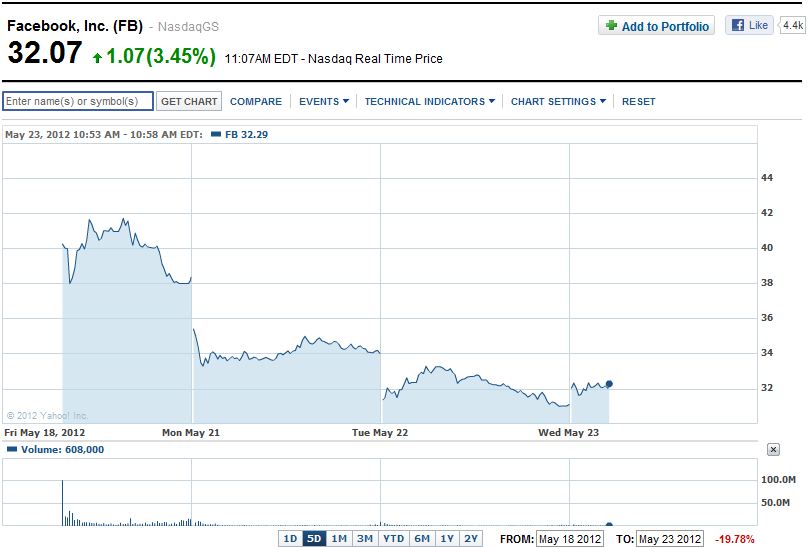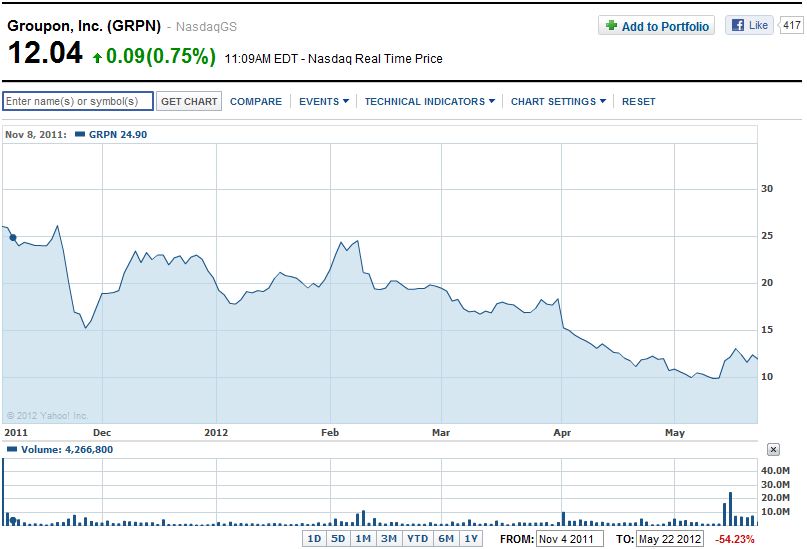At dinner last night with some of my B-school friends, conversation turned to the two most perplexing stock offerings of the last year: Facebook's and Groupon's. In both cases, the companies' very young owners and very rich venture capital investors got rich, but what happened after that? Here's Facebook's performance this week:

And Groupon's:

This morning, Groupon announced a proposed settlement in the class-action suit accusing them of practicing their well-known business model:
If you purchased or received a Groupon Voucher issued for redemption in the United States between November 1, 2008 and December 1, 2011, then you are a member of the class (“Class Member”) for purposes of this class action settlement, and may be entitled to receive settlement benefits, unless you are one of the following: (1) an employee of Groupon, Inc.; (2) a business with whom Groupon has partnered to offer Groupon vouchers (“Merchant Partners”); or (3) a parent company, subsidiary, affiliate or director or officer of Groupon or a Merchant Partner.
Facebook has its own problems. It's been a public company for less than three days, and already the SEC is investigating. Where they go, lawsuits surely will follow:
[R]egulators are concerned that banks may have shared information only with certain clients, rather than broadly with investors. On Tuesday, William Galvin, the secretary of state in Massachusetts, subpoenaed Morgan Stanley over discussions with investors about Facebook’s offering. The Financial Industry Regulatory Authority, Wall Street’s self-regulator, is also looking into the matter. The chairwoman of the Securities and Exchange Commission, Mary L. Schapiro, said Tuesday that the agency would examine issues related to Facebook’s I.P.O., but she did not elaborate.
Morgan Stanely, the banker in question, led both the Groupon and Facebook IPOs.
At least they didn't lose $2 billion last week gambling with money insured by us taxpayers.